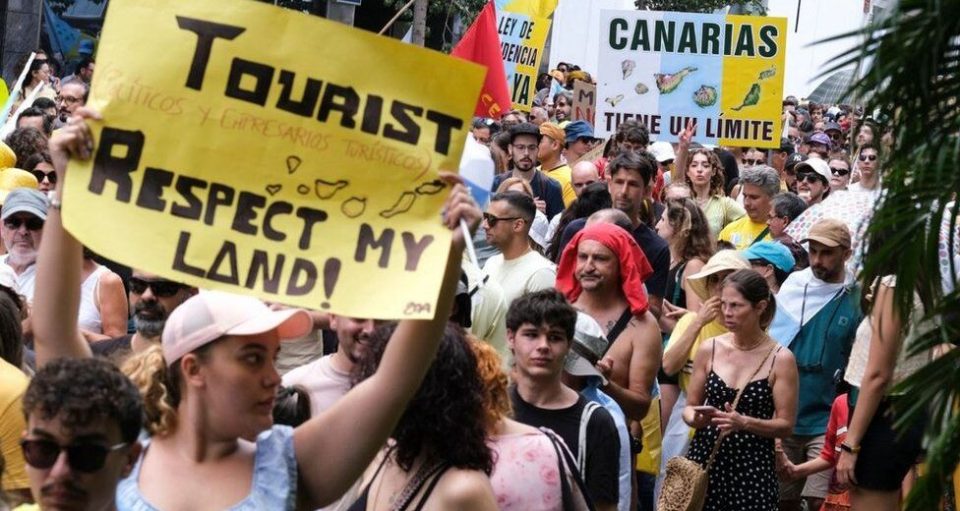Thousands of demonstrators have taken to the streets across the Canary Islands to protest the impact of tourism on local communities and the environment. The simultaneous protests occurred in Gran Canaria, Tenerife, La Palma, Fuerteventura, Lanzarote, and El Hierro, demanding a reevaluation of the tourism model that has shaped these popular Spanish islands.
In Playa de las Americas, a resort area favored by British tourists, protesters gathered on the beach, chanting, “This beach is ours,” while vacationers enjoyed the sun. With at least 8,000 participants, the demonstrations were organized under the slogan “Canary Islands has a limit,” according to the Spanish government.
Activists argue that the influx of millions of annual tourists has inflated housing prices, making it increasingly difficult for locals to secure affordable accommodations. The presence of approximately 2.2 million residents contrasts sharply with the nearly 9.9 million tourists who visited the islands between January and September of last year, marking a 10.3% increase from the previous period, as reported by the Spanish National Statistics Institute.
Sara Lopez, a 32-year-old protester from Gran Canaria, emphasized the need for change: “We need a new tourism model that retains wealth here and respects the beauty of our land.”
While tourism is a significant contributor to Spain’s economy, discontent has been growing in popular destinations like Barcelona, Mallorca, and Malaga. Recently, Valencia also witnessed hundreds of protesters demanding affordable housing, as the proliferation of tourist rentals drives up prices.
In response to these concerns, the regional government of the Canary Islands is drafting new legislation aimed at regulating short-term rentals. This law, anticipated to pass this year, will restrict newly constructed properties from entering the short-let market, while requiring existing property owners with permits to meet new compliance standards, including allowing neighbors the right to object.
The Canary Islands have chosen to address the challenges posed by the surge in tourist rentals, aiming to balance the needs of locals with the demands of the tourism industry.
Credit: Sky News




